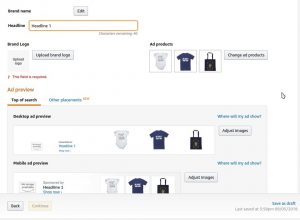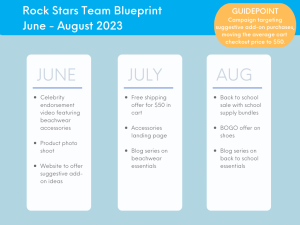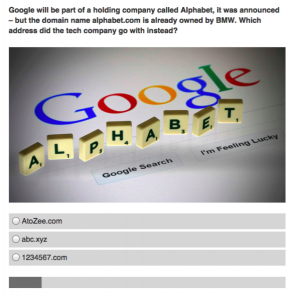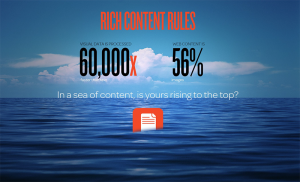 A research startup backed by former Publicis media chief Jack Klues will begin testing a self-serve platform enabling brands to log in, type in a brand name, and target consumers based on the “affinity” they have for that brand. The startup, aptly named Affinity Answers, utilizes a powerful proprietary method that scrapes what people do and say about brands on social media, and scores them based on the connection they feel for specific brands.
A research startup backed by former Publicis media chief Jack Klues will begin testing a self-serve platform enabling brands to log in, type in a brand name, and target consumers based on the “affinity” they have for that brand. The startup, aptly named Affinity Answers, utilizes a powerful proprietary method that scrapes what people do and say about brands on social media, and scores them based on the connection they feel for specific brands.
“If I’m Coke, I can log in and type Coke Zero and I’ll get a quick hit list of what other brands my consumers are engaging with,” explains founder and CEO Sree Nagarajan, adding: “This process often reveals surprising affinities, like who knew my customers also like Cheetos.”
By interacting with the platform, Nagarajan says brands can find their “undiscovered, often unexpected, ‘act-alike’ audiences.”
By act-alike, Nagarajan means the consumers aren’t just the ones that look like a brand’s targets, but actually behave like them.
“It puts a measuring stick against the upper-end of the [marketing] funnel,” explains Klues, who became and investor and joined Affinity Answers board nearly two years ago, because he believed it was an answer to a vexing problem in the ad industry that is older than a John Wanamaker quote.
“It gives a brand the ability to use their affinity — or the affinity of similar or competing brands — as a bridge and put a real number against it,” adds Klues, drawing on his media planning and strategy perspective, and noting: “It should enable us to provide a client with a measuring stick on the [media] property we’re buying for them, without necessarily having to show that they’re converting at the bottom end of the funnel.”
People on Madison Avenue have long-called that kind of solution a “Holy Grail” of sorts, because it is capable of marrying how a consumer, thinks, feels and behaves with the propensity they have for a given brand.
Klues, a life-long Publicis media executive who began his career at Leo Burnett and rose to CEO of VivaKi before retiring a couple of years ago, is one of the most respected media executives on Madison Avenue. He said he has been approached by numerous startups to invest or be part of their advisory boards, but so far has only played a role in three ventures, with Affinity Answers being the major one, because he believes so much in the product.
Nagarajan says that while the model is sophisticated, it is also relatively simple to use. Utilizing public social media APIs — or application protocol interfaces developers use to integrate with other technology and databases — he says Affinity Answers is able to anymous track, score and cluster consumer brand affinities based on simple social media behaviors.
Because it doesn’t rely simply on what people say about brands on social media — but how they actually “engage” with brands — he says it is representative of the “silent majority” of consumers.
To date, Affinity Answers has amassed so-called Affinity Scores on more than 50,000 brands, and continues to expand its database.
To further refine targeting and identify, which media has the greatest propensity of those consumers, Nagarajan says the Affinity Scores can be appended to either a brand’s own first-party data or to those of third-parties such as the Big Data management platforms that brands and agencies utilize to target digital media users, and increasingly, television’s too.
“There’s a ton of information out there on what household you live in, what product you buy, what car you drive, etc.,” says Klues, adding, “but there wasn’t a metric that was trying to incorporate that human variable.”
(42)
Report Post







